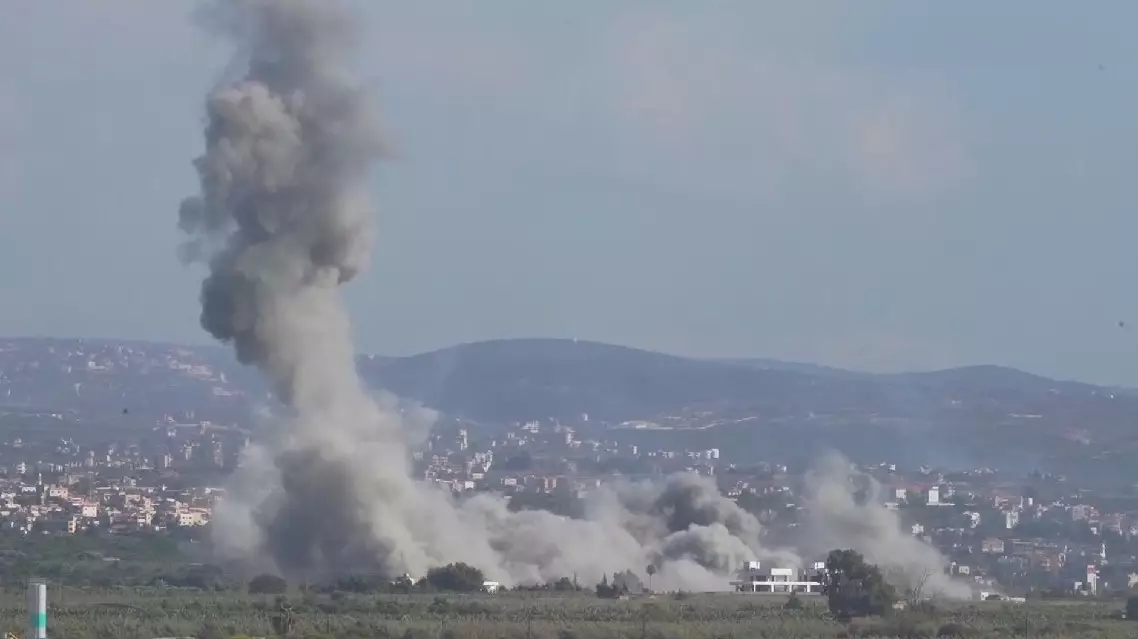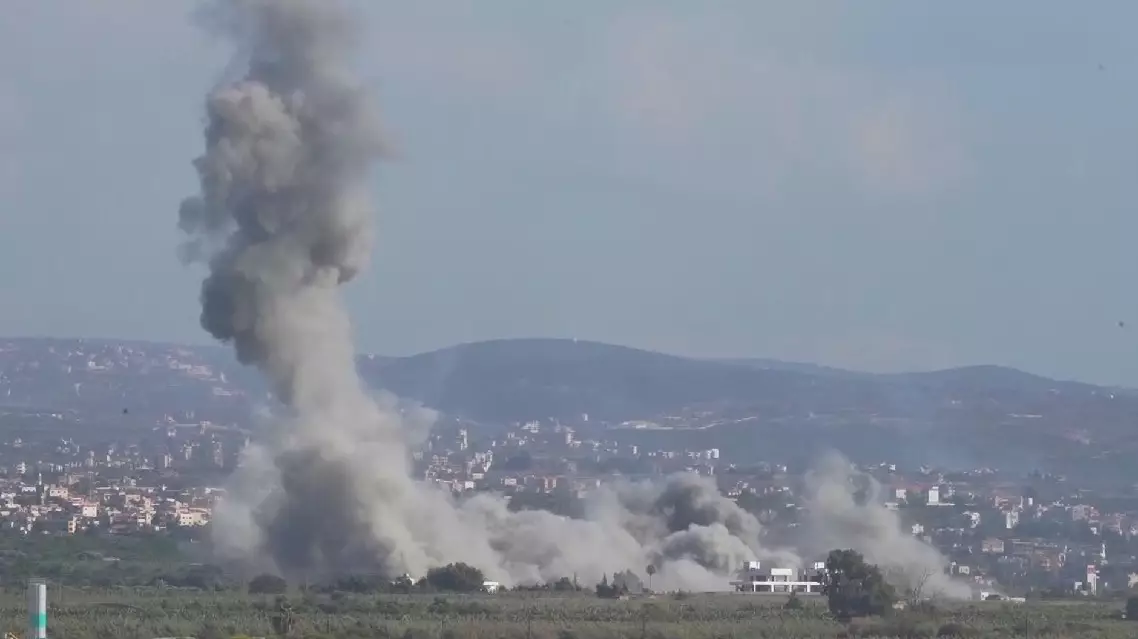The recent escalation of Israeli military operation against Lebanon may drag the whole Middle East region into a wide-ranging regional war, said Lebanese Agriculture Minister Abbas Al-Hajj Hassan in an interview with China Global Television Network.
Since Sept. 23, the Israeli army has intensified its airstrikes against Hezbollah targets across Lebanon, causing great civilian casualties and forcing residents in many areas to leave their homes.
"We and the entire region are concerned about Israel's attacks. Therefore, when we call for a ceasefire today, we are echoing the calls from many countries. Israel must take responsibility for the current situation. Do you think the Israeli government will heed this appeal? Based on past experiences, I believe the answer is likely to be negative, as dozens, if not hundreds, of international resolutions --especially the latest U.N. Security Council Resolution 2735 -- have not captured the attention of the Israeli government. We must describe what is happening now as a barbaric crime in history, unprecedented in both Lebanese and human history. Over the past year, we have suffered greatly, but in the last few hours and days, Israel's behavior has become increasingly blatant, completely disregarding any law, international norms, humanitarian, or moral constraints," said the minister.
After 247 days of the latest round of Palestinian-Israeli conflict in Gaza, the Security Council adopted Resolution 2735 on June 10 proposing a comprehensive three-phase ceasefire deal to end the conflict in Gaza, urging both Israel and Hamas to implement it fully and without delay and condition.
In the interview, Hassan said that Israel's airstrikes on Lebanon have caused huge economic losses because they target infrastructure and farmland.
"Therefore, I want to emphasize that if the humanitarian and economic losses have reached such a significant scale, you can imagine the extent of the losses in the agricultural sector. We are discussing not only the agricultural sector but also the labor force and import and export activities. What I want to convey is that we have been unable to secure key crops. Moreover, the Beqaa Valley is a vital component of Lebanon's economy and agriculture, as well as an important base for Lebanon's military reserves and supply. Currently, we are unable to cope with the destruction caused by the war. Israel's indiscriminate bombing has now spread to 83 villages and cities, including Baalbek (a city located east of the Litani River in the Beqaa Valley) and areas such as the Kola District of Beirut, and the situation in the south remains bleak. Additionally, the white phosphorus released by the Israeli army is igniting hundreds, if not thousands, of dunams (hundreds of hectares) of land each day, effectively turning these areas into scorched earth and forcing residents to flee," he said.
The Beqaa Valley is a fertile valley in eastern Lebanon and is Lebanon's most important farming region.
The conflict also has had a negative impact on all economic fields in his country, he said.
"There is no doubt that the war will lead to rising prices, which may result in a shortage of some products. However, our ministry is addressing this situation in great detail, despite the threats and bombings and some staff members are unable to access the bombed areas. Currently, the bombing has spread to the southern, western, and eastern regions of Lebanon, and the coastal areas have also been affected, extending even to the western Beqaa Valley and the farthest border between Lebanon and Syria," the minister said.
In the interview, Hassan extended his gratitude towards China's support for his country, particularly its financial assistance to refugees.
"As far as China's position is concerned, both the government and the people of China have consistently supported us and provided assistance following the crisis in 2019. We are deeply grateful for this. We see this as support that transcends politics, grounded in humanitarian and practical aid. This support is extremely important, and the relationship between our two countries is developing rapidly. We uphold a philosophy of prioritizing our own interests while also considering China's interests. Therefore, within this framework, we will strengthen cooperation with China to protect and support our people, enhance the development of the agricultural sector, and ensure food security," Hassan said.
Lebanon has been mired in an unprecedented financial crisis since late 2019. The collapse of the local currency and devaluation of wages, paralleled by heavy restrictions by banks on cash withdrawals, plunged the majority of the population into poverty.

Escalation of Israeli military operations pulls Middle East toward full-scale conflict: minister

Escalation of Israeli military operations pulls Middle East toward full-scale conflict: minister









